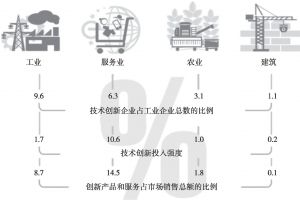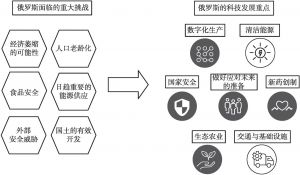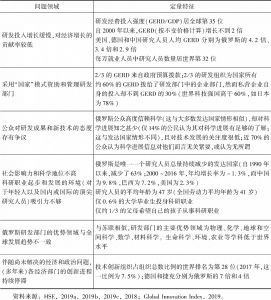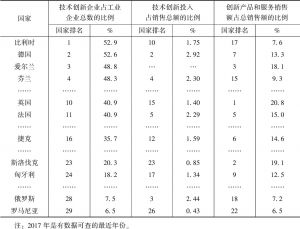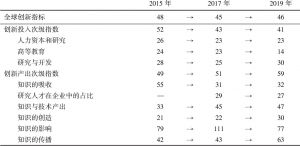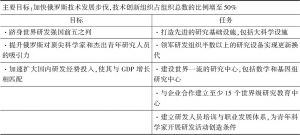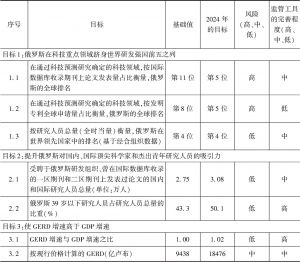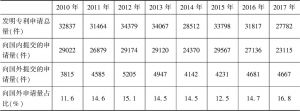摘要
本文对俄罗斯科技创新现状、2010年以来的科技政策、2012年5月一系列总统令设定的关键目标的落实情况进行了评价,并对普京总统在2016~2018年设定的新目标进行了评估。评估发现2010年以来的政府科技政策取得了一定成效,但设定的关键目标仍有相当比例未能达到,新国家政策确定了七大科技发展重点,但新的目标极具挑战性。建议构建一个覆盖从联邦到各地区的体系,扩大经费来源,实施体制改革,以促进竞争,改善投资环境,鼓励企业创新活力;继续推行“绩效合同”,完善研究人员学术资历和成就的评价机制,提高研究人员的社会地位。
作者
〔俄〕列奥尼德·高克伯格 列奥尼德·高克伯格(Leonid Gokhberg),教授,俄罗斯国家研究型高等经济大学第一副校长,统计研究和知识经济学研究所所长,研究方向为科技创新、教育与数字经济统计,科技创新经济与制度,预测研究,科技创新政策研究。
塔蒂亚娜·库兹涅佐娃 (Tatiana Kuznetsova),博士,俄罗斯国家研究型高等经济大学统计研究和知识经济学研究所科技、创新和信息政策中心主任,研究方向为科技创新政策、科技创新发展分析、研究职业、国际科技合作、科技创新经济与组织。
米哈伊尔·格什曼 (Mikhail Gershman),博士,俄罗斯国家研究型高等经济大学统计研究和知识经济学研究所副主任,通讯作者,研究方向为科技创新政策、创新管理、科技创新指标、创意经济。
- Власова,В. В.,Кузнецова,Т. Е.,Рудь,В. А. Анализ драйверов и ограничений развития России на основе информации Глобального инновационного индекса//Вопросы экономики. 2017. № 8. С. 24-41.
- Гохберг,Л. М.,Кузнецова,И. А.,Кузнецова,Т. Е.,Соколов,А. В.,Городникова,Н. В.,Китова,Г. А. Отечественная наука и научная политика в конце XX в. :тенденции и особенности развития (1985-1999). М.:Издательство Московского университета,2011.
- Amabile,T. M.(1997). Motivating Creativity in Organizations:On Doing What You Love and Loving What You Do. California Management Review,Vol.40,No.1,pp.39-58.
- Gershman,M.,Gokhberg,L.,Kuznetsova,T.,Roud,V.(2018). Bridging S&T and Innovation in Russia:A Historical Perspective,Technological Forecasting and Social Change,No.133,132-140.
- Gershman,M.,Kuznetsova,T.(2016). The future of Russian Science through the Prism of Public Policy,Foresight,Vol.18,No.3,pp.320-339.
- Gershman,M.,Kuznetsova,T.(2013). Efficient Contracting in the R&D Sector:Key Parameters. Foresight Russia,7(3):26-36.
- Gershman,M.,Thurner,T.(2016). New Development:State-owned Enterprises as Powerhouses for Innovation—the Russian Case,Public Money & Management. Vol.36,No.4,pp.297-302.
- Global Innovation Index(2019). https://www.wipo.int/global_innovation_index/en/2019.
- Godin,B.(2009). National Innovation System:The System Approach in Historical Perspective,Science,Technology and Human Values,34 (4),476-501.
- Gokhberg,L.,Kuznetsova,T.,Pikalova,A. G. et al. Overview of Science,Technology and Innovation Development in Russia. in BRICS Innovative Competitiveness Report 2017. Singapore:Springer,2018. Ch.5. 115-150.
- Gokhberg,L.,Roud,V.(2016). Structural Changes in the National Innovation System:Longitudinal Study of Innovation Modes in the Russian Industry,Economic Change and Restructuring,49 (2-3),269-288.
- EU (European Union)(2019). European Innovation Scoreboard,2019,https://ec.europa.eu/growth/industry/innovation/facts-figures/scoreboards_en.
- EU(2016). Research and Innovation Futures 2030:Exploring the Future of Research. Trends and Drivers in Doing and Governing Research. European Commission. Brussels.
- Jacobsen,C. B.,Andersen,L. B.(2014). Performance Management for Academic Researchers:How Publication Command Systems Affect Individual Behavior,Review of Public Personnel Administration. Vol.34,No.2,pp.84-107.
- HSE(2019a). Science Indicators:2017. Data book. Higher School of Economics:Moscow.
- HSE(2019b). Indicators of Innovation Activities:2019. Data book. Higher School of Economics:Moscow.
- HSE(2019c). Science. Technology. Innovation. Pocket Data Book. Higher School of Economics:Moscow.
- HSE(2018). Russian Science in Figures. Analytical Report. Higher School of Economics:Moscow.
- HSE(2017). Russian Regional Innovation Scoreboard. Issue 5(eds.) by G. Abdrakhmanova,P. Bakhtin,L. Gokhberg et al.,National Research University Higher School of Economics.-Moscow:HSE,2017.
- Grupp,H.,& Schubert,T.(2010). Review and New Evidence on Composite Innovation Indicators for Evaluating National Performance,Research Policy,39(1),67-78.
- Hagedoorn,J.,& Cloodt,M.(2003). Measuring Innovative Performance:Is there an Advantage in Using Multiple Indicators?,Research Policy,32(8),1365-1379.
- Kim,D. H.,Bak,H. J.(2016). How Do Scientists Respond to Performance-based Incentives?,Evidence from South Korea,International Public Management Journal,19(1),31-52.
- Martin,R.L.,Osberg,S.(2007). Social Entrepreneurship:The Case for Definition,Stanford Social Innovation Review,5(2),28-39.
- OECD(2018). Science,Technology and Innovation Outlook 2018,https://www.oecd.org/sti/oecd-science-technology-and-innovation-outlook-25186167.htm.
- OECD(2017). Science,Technology and Industry Scoreboard,https://yandex.ru/search/?text=OECD%20sCIENCE%20SCOREBOARD%2C%202019&lr=213.
- OECD(2015). The Innovation Imperative:Contributing to Productivity,Growth and Well-Being,Paris:OECD Publishing. http://dx.doi.org/10.1787/9789264239814-en.
- The Science and Technology Labor Force:The Value of Doctorate Holders and Development of Professional Careers,ed. by L. Gokhberg,N. A. Shmatko,L. Auriol. Springer International Publishing Switzerland,2016.
- Smith,A.,Stirling,A.,Berkhout,F.(2005). The Governance of Sustainable Socio-technical Transitions,Research Policy,34,1491-1510.
- Schot,J.,Steinmueller,W. E.(2019). Transformative Change:What Role for Science,Technology and Innovation Policy?,Research Policy,48,843-848.
- Schiele,B.,Claessens,M.,Shi,S.(2008)Science Communication in the World Practices,Theories and Trends,https://www.researchgate.net/publication/303725205_Science_communication_in_the_world_Practices_theories_and_trends.
- UNESCO(2016). Gokhberg L.,Kuznetsova T. Russian Federation,in UNESCO Science Report:towards 2030. UNESCO Publishing,2016,pp.343-363.
- Ren,F.,Zhai,J.(2014). Communication and Popularization of Science and Technology in China,https://www.researchgate.net/publication/297363222_Communication_and_popularization_of_science_and_technology_in_China.


